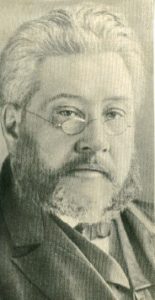
The following quote is from Charles Spurgeon. For more information on what “Staying on the Line” is all about, please visit the Charles Simeon Trust.
More information here.
Never strain passages when you are expounding. Be thoroughly honest with the word: even if the Scriptures were the writing of mere men, conscience would demand fairness of you; but when it is the Lord’s own word, be careful not to pervert it even in the smallest degree. Let it be said of you, as I have heard a venerable hearer of Mr. Simeon say of him, “Sir, he was very Calvinistic when the text was so, and people thought him an Arminian when the text was that way, for he always stuck to its plain sense.” A very sound neighbor of ours once said, by way of depreciating the grand old reformer, “John Calvin was not half a Calvinist,” and the remark was correct as to his expositions, for in them, as we have seen, he always gave his Lord’s mind and not his own. In the church of St. Zeno, in Verona, I saw ancient frescoes which had been plastered over, and then covered with other designs; I fear many do this with Scripture, daubing the text with their own glosses, and laying on their own conceits. There are enough of these plasterers abroad, let us leave the evil trade to them and follow an honest calling. Remember Cowper’s lines—
“A critic on the sacred text should be
Candid and learn’d, dispassionate and free;
Free from the wayward bias bigots feel,
From fancy’s influence and intemperate zeal;
For of all arts sagacious dupes invent,
To cheat themselves and gain the world’s assent,
The worst is—Scripture warped from its intent.”
C. H. Spurgeon, Lectures to My Students: Commenting and Commentaries; Lectures Addressed to the Students of the Pastors’ College, Metropolitan Tabernacle., vol. 4 (New York: Sheldon & Company, 1876), 55–56.

